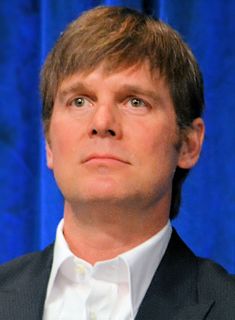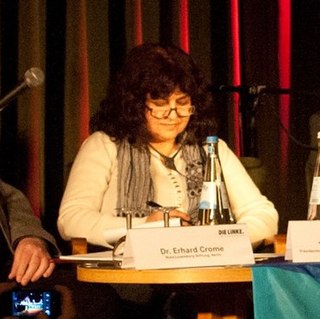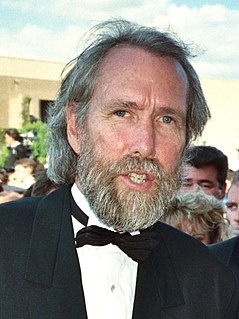A Quote by Peter Krause
I'm very wary of large groups of people getting together and trying to believe the same thing. It never seems to end well, whether it's political or religious or whatever.
Related Quotes
I believe that my theory is correct; for whatever be the question upon which I am arguing, whether it be religious, philosophical, political, or economical; whether it affects well-being, morality, equality, right, justice, progress, responsibility, property, labor, exchange, capital, wages, taxes, population, credit, or Government; at whatever point of the scientific horizon I start from, I invariably come to the same thing—the solution of the social problem is in liberty.
From the time I was little, I'd been kind of freaked out by the whole deal with large groups of people. And even moderate - sized groups of people. It's always made me very uncomfortable. It's such a strange phenomenon, what happens to people when they're all moving in the same direction, all chanting the same tune, the same line of slogans or something. That stuff always seems very alien and bizarre to me, and kind of scary.
Because today we live in a society in which spurious realities are manufactured by the media, by governments, by big corporations, by religious groups, political groups... So I ask, in my writing, What is real? Because unceasingly we are bombarded with pseudo-realities manufactured by very sophisticated people using very sophisticated electronic mechanisms. I do not distrust their motives; I distrust their power. They have a lot of it. And it is an astonishing power: that of creating whole universes, universes of the mind. I ought to know. I do the same thing.
We have mirror neurons that mirror other human beings. In other words, if I'm smiling it tends to make other people with me smile also. Whether I'm happy or lonely, I will tend to have happy or lonely friends. The same thing happens with actions; if I make an act of generosity it tends to be passed on down through society. So I see small groups as being very important in having an effect on large groups.
If you look back at history or you look at any place in the world where religious groups or ethnic groups or racial groups or political groups are killing each other, or families have been feuding for years and years, you can see - because you're not particularly invested in that particular argument - that there will never be peace until somebody softens what is rigid in their heart.
We live in a society in which spurious realities are manufactured by the media, by governments, by big corporations, by religious groups, political groups. I ask, in my writing, 'What is real?' Because unceasingly we are bombarded with pseudo realities manufactured by very sophisticated people using very sophisticated electronic mechanisms.
If we look more closely, we see that any violent display of power, whether political or religious, produces an outburst of folly in a large part of mankind; indeed, this seems actually to be a psychological and sociological law: the power of some needs the folly of others. It is not that certain human capacities, intellectual capacities for instance, become stunted of destroyed, but rather that the upsurge of power makes such an overwhelming impression that men are deprived of their independent judgment, and...give up trying to assess the new state of affairs for themselves.
It seems to be this hot-bed for these ideas and bringing these groups together. You find that the one thing that everybody has in common, whether they're a teenager who has run away from his parents, or a divorcee who lost her husband, is that they all have in common this feeling of searching for a meaning in their lives.
Faith is a great thing, and really religious people would like us to believe that faith and knowing are the same thing, but I don't believe that myself. Because there are too many different ideas on the subject. What we know is this: When we die, one of two things happens. Either our souls and thoughts somehow survive the experience of dying or they don't. If they do, that opens up every possibility you could think of. If they don't, it's just blotto. The end.



































